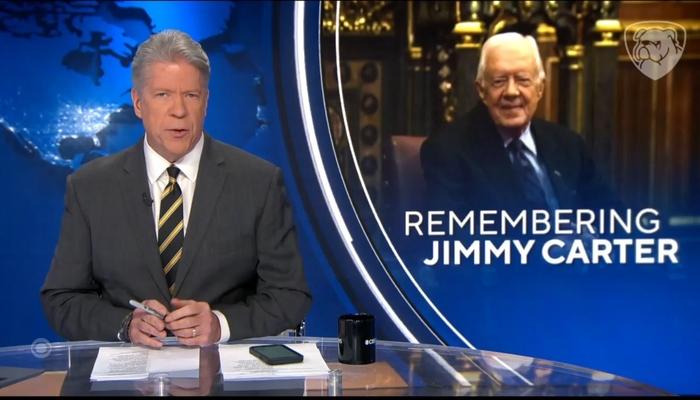
Carter’s Canonization: Saint Jimmy
Once again Americans have been inundated by a tsunami of one-sided “news” coverage and an officially sanctioned mourning period and state funeral were exploited (at taxpayers’ expense) for political purposes, as we were subjected to a hagiographies of former President Jimmy Carter.
We endured hours of propagandistic MSM radio and TV reportage (or what passes for it), whether we liked it or not, often preempting regularly scheduled programming, that has totally failed to provide a full, comprehensive view of the Carter presidency, completely missing its very dark side, in particular Carter’s Big Lie.
This includes outlets that purport themselves to be “Left,” such as The Nation. Consider the obituary penned by that outlet’s editorial director and publisher Katrina vanden Heuvel, which never so much as mentions Carter’s unforgivable sins. The Nation may flatter itself as being “America’s leading source of progressive politics and culture,” but the fact that it ignores Carter’s crimes makes it, at least in this case, no better than MSM. (This could account for why The Nation drastically cut back its print publications in 2023, declining from a weekly to a monthly. If an “alternative press” outlet fails, like the corporate media, to do probing analysis and investigative journalism, why should someone bother to read and subscribe to it?)[1]
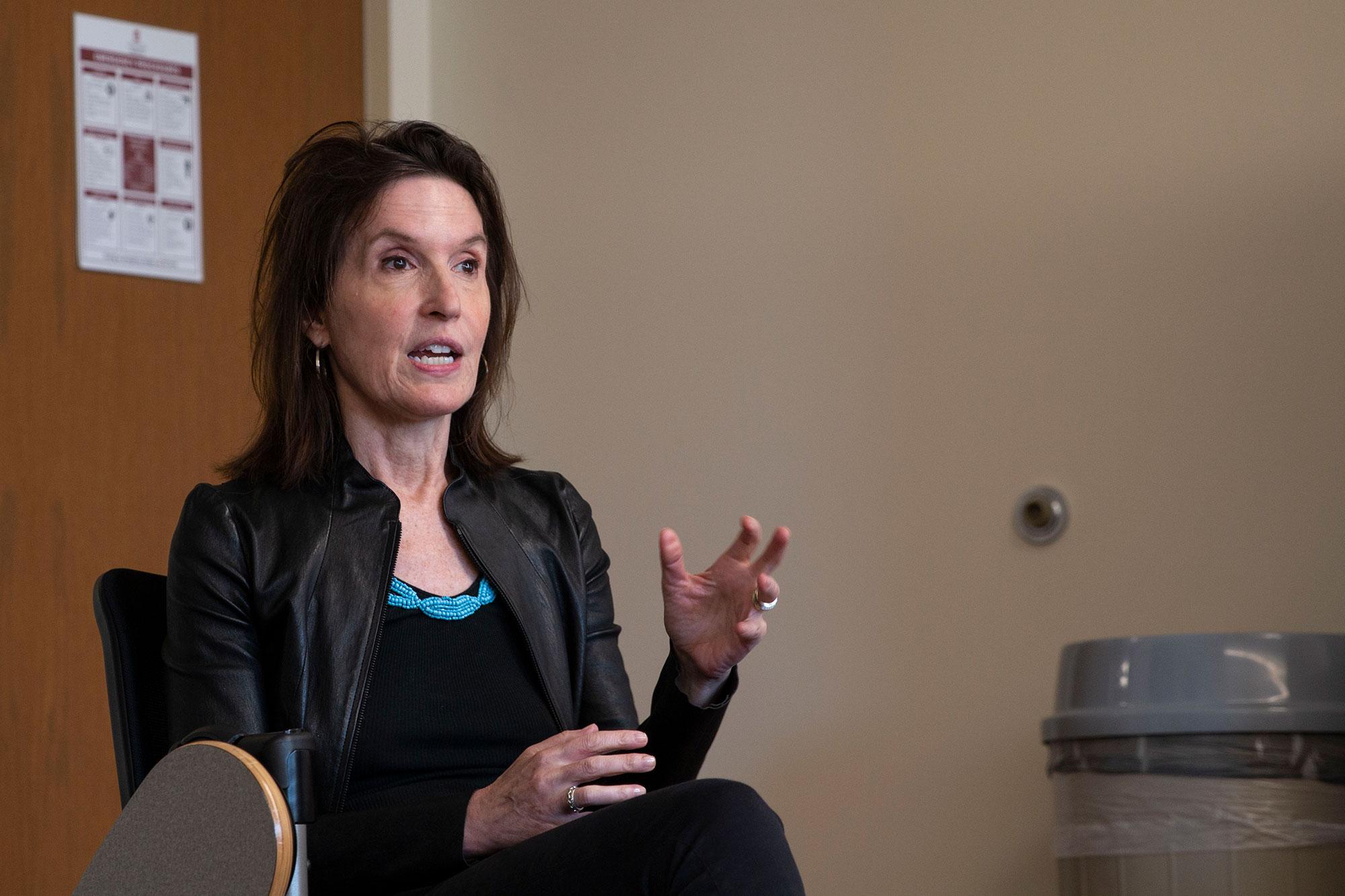
Instead, the rosy picture flooding the airwaves et al. is of the simple “Man from Plains,” a Georgia peanut farmer who rose to the White House during the post-Vietnam War, post-Watergate period by promising the world-weary American people that he would never lie to them. On December 29, 2024, an Atlanta Journal-Constitution headline ballyhooed: “Jimmy Carter was nation’s Sunday School teacher.”
A chyron on the reputedly left-leaning MSNBC dutifully instructed us that Carter was a “humanitarian and peacemaker.” As flags fly at half-staff, the 39th president is being lionized and lauded for brokering a peace deal in the Middle East, and for subsequently being awarded a Nobel Peace Prize, championing human rights, pioneering alternative energy, building Habitat for Humanity houses, the Carter Center’s election monitoring abroad and eradicating of diseases, and so on.
Commentator after commentator extols the Georgian as our most exemplary ex-president, while some do mention (in passing) some problems that took place when this one-term president was in the White House, such as an oil crisis and his failure to bring U.S. hostages home from Tehran while he was still in office. But I have not heard a single talking head dare delve into the dirty deeds and tricks of the Carter presidency, the reverberations from which we are still living with today.
We are told that it is bad manners to “speak ill of the dead,” but the following exhumation of parts of the record that are being completely overlooked by the corporate media and government shills pertains to Carter’s presidency, not to his personal side. The conclusion of the life of a major political leader provides an opportunity for an overview and re-evaluation of figures who lived in the public eye and influenced world historical events—for better or for worse, even if it goes against the grain of the officially sanctioned narrative.
“Carter’s Global Gun-Running” and Big Lie: Operation Cyclone
Known for that toothy smile, candidate Carter may have promised “I’ll Never Lie to You” (it was even the title of his 1976 book), but he lied those famous teeth off. In fact, Carter’s Big Lie triggered a chain of events that arguably culminated in the worst attack on American territory since the War of 1812 and Pearl Harbor, and may continue to have consequences today.
In an April 11, 1980, interview with editors and broadcasters, Carter was asked: “Mr. President, have you any intentions of helping the Afghans in some way fight the Soviet troops there?” The 39th president replied:
“That’s a difficult thing for us to do or to discuss. The Soviets, I am sure, have been extremely surprised at the tenacity and the courage of the Afghan freedom fighters.
“There’s been an extraordinary circumstance there in that there have been heavy defections from the Afghan armed forces by those who favor liberty and freedom more than accepting the subjugation of the Soviet invaders. As they have defected from the Afghan forces, they have taken with them large quantities of weapons and ammunition. This has been a very effective source of supply of weapons for the Afghan people.
“In addition to that, even some who still stay within the Afghan armed forces are supplying part of their ammunition to the freedom fighters themselves.
“I don’t think there are any American weapons at all in Afghanistan. I think there have been a few grenades, I understand, found in Afghanistan, but those were derived from previous sales made to Iran in years gone by.
“So, my own judgment is that it’s proper for us to both conduct and to discuss aid that we are giving to the refugees. And there are now probably 650,000 refugees in Pakistan, out of Afghanistan, and maybe more than 100,000 more in Iran and other countries—maybe a total of 800,000 or more. We can give aid to them and support. But I think the Afghan freedom fighters are doing very well on their own in getting weapons away from their own previous armed forces and also perhaps some from the Soviet invaders.”
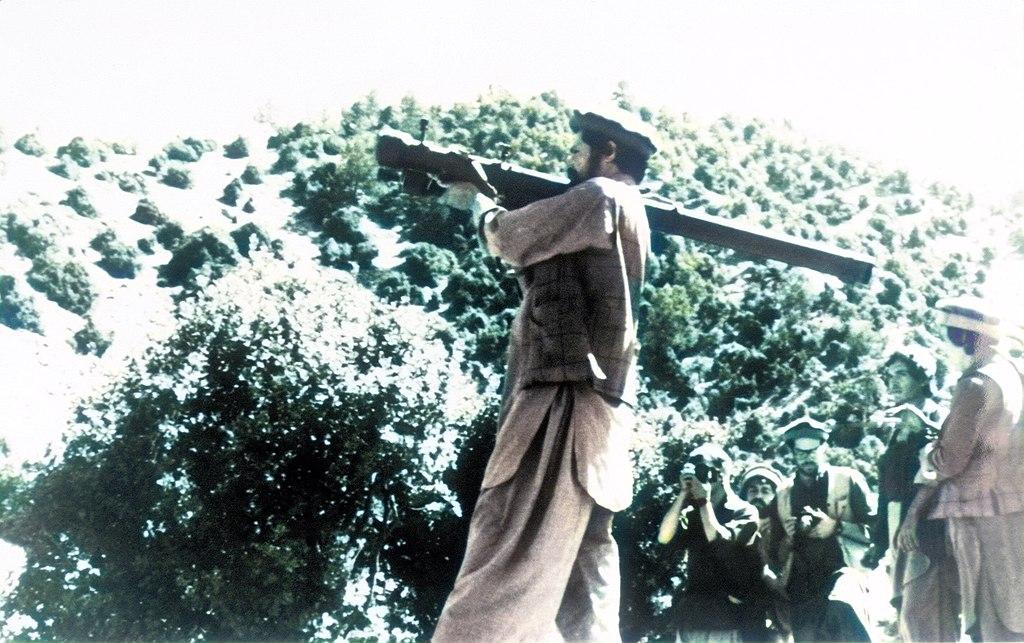
Earlier during that election year, as George Uriah noted in his 2006 University of Tennessee, Knoxville, Masters thesis entitled “‘One Major Step Short of War:’ Jimmy Carter, the Soviet Invasion of Afghanistan, and the Last Chapter of the Cold War,” “White House spokesman Hodding Carter continually refused to comment about possible aid to the insurgents in Afghanistan.”
Carter, renowned as a “micromanager,” clearly lied, while his mouthpiece dissembled to the press. In his 1982 book Keeping Faith: Memoirs of a President, the ex-commander-in-chief himself admitted: “In a highly secret move, we also assessed the feasibility of arranging for Soviet-made weapons (which would appear to have come from the Afghan military forces) to be delivered to the freedom fighters in Afghanistan and of giving them what encouragement we could to resist the subjugation by the Soviet invaders.”
In actuality, what became at the time the most expensive CIA covert operation began on July 3, 1979—a half year before Soviet troops entered Afghanistan, a nation which, unlike the distant United States, shared a 1,000-mile border with the USSR. According to a January 1998 interview in the weekly French magazine Le Nouvel Observateur headlined “Yes, the CIA Entered Afghanistan Before the Russians,” the ex-president’s hawkish National Security Adviser Zbigniew Brzezinski was asked:
“Q: The former director of the CIA, Robert Gates, stated in his memoirs [1996’s From the Shadows], that American intelligence services began to aid the Mujahideen in Afghanistan 6 months before the Soviet intervention. In this period you were the national security adviser to President Carter. You therefore played a role in this affair. Is that correct?
“Brzezinski: Yes. According to the official version of history, CIA aid to the Mujahideen began during 1980, that is to say, after the Soviet army invaded Afghanistan, 24 Dec 1979. But the reality, secretly guarded until now, is completely otherwise: Indeed, it was July 3, 1979 that President Carter signed the first directive for secret aid to the opponents of the pro-Soviet regime in Kabul. And that very day, I wrote a note to the president in which I explained to him that in my opinion this aid was going to induce a Soviet military intervention.”
An anti-communist zealot and scion of Polish aristocracy, the berserk Brzezinski went on to pooh-pooh and justify the Carter regime’s subterfuge, subversion and interference in the internal affairs of Afghanistan in the same Le Nouvel Observateur Q&A (which he subsequently disputed):
“Q: Despite this risk, you were an advocate of this covert action. But perhaps you yourself desired this Soviet entry into war and looked to provoke it?
“Brzezinski: It isn’t quite that. We didn’t push the Russians to intervene, but we knowingly increased the probability that they would.
“Q: When the Soviets justified their intervention by asserting that they intended to fight against a secret involvement of the United States in Afghanistan, people didn’t believe them. However, there was a basis of truth. You don’t regret anything today?
“Brzezinski: Regret what? That secret operation was an excellent idea. It had the effect of drawing the Russians into the Afghan trap and you want me to regret it? The day that the Soviets officially crossed the border, I wrote to President Carter: We now have the opportunity of giving to the USSR its Vietnam war. Indeed, for almost 10 years, Moscow had to carry on a war unsupportable by the government, a conflict that brought about the demoralization and finally the breakup of the Soviet empire.
“Q: And neither do you regret having supported the Islamic [fundamentalists], having given arms and advice to future terrorists?
“Brzezinski: What is most important to the history of the world? The Taliban or the collapse of the Soviet empire? Some stirred-up Moslems or the liberation of Central Europe and the end of the Cold War?
“Q: Some stirred-up Moslems? But it has been said and repeated: Islamic fundamentalism represents a world menace today.
“Brzezinski: Nonsense! It is said that the West had a global policy in regard to Islam. That is stupid. There isn’t a global Islam. Look at Islam in a rational manner and without demagoguery or emotion. It is the leading religion of the world with 1.5 billion followers. But what is there in common among Saudi Arabian fundamentalism, moderate Morocco, Pakistan militarism, Egyptian pro-Western or Central Asian secularism? Nothing more than what unites the Christian countries.”
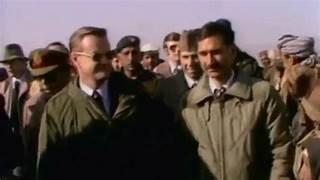
A June 26, 1979, meeting of the Special Coordination Committee with Vice President Walter Mondale, Brzezinski, CIA Director Stansfield Turner, CIA Deputy Director Frank Carlucci and others “led to two Presidential Findings on Afghanistan, both signed by Carter on July 3. The first, whose scope covered Afghanistan, provided authorization to ‘support insurgent propaganda and other psychological operations in Afghanistan; establish radio access to the Afghan population through third country facilities;’ and ‘provide unilaterally or through third countries as appropriate support to Afghan insurgents, either in the form of cash or non-military supplies.’
The second finding, whose scope was worldwide, provided authorization to ‘expose the Democratic Republic of Afghanistan and its leadership as despotic and subservient to the Soviet Union’ and to ‘publicize efforts by the Afghan insurgents to regain their country’s sovereignty.’ (Carter Library, Staff Office, Counsel, Cutler, Box 60, Central Intelligence Agency Charter: 2/9–29/80).”
An official State Department Office of the Historian record documents the fateful directive, which would result in disastrous consequences, embroiling Washington in Afghanistan’s internal affairs for decades to come: “A 3 July 1979 Presidential Finding authorized CIA to expend up to $695,000 [more than $3 million in 2024 US dollars] to support the Afghan insurgents, either unilaterally or through third countries, by providing cash or non-military supplies; and also authorized CIA propaganda operations in support of the insurgency. At the time the SCC discussed this proposal, it was agreed that consideration would be given in the future to increased support should circumstances indicate additional funds were warranted.”
As Uriah observed: “Thus began a chain of events that saw American money spent to purchase Chinese weapons shipped to Pakistan and then to Afghani freedom fighters who would use them against Soviet troops, a tangled web that would make the most cynical member of the Reagan administration proud, a convoluted trail that even Oliver North could not have fathomed.”
This “chain of events” included the Carter administration opening the floodgates for the most expensive U.S. clandestine operation to date, prophetically codenamed “Operation Cyclone,” whose wild winds we are still reaping—as of January 1, 2025, in New Orleans—harmed the cause of détente and are arguably still blowing. As Pulitzer Prize-winning author Tim Weiner wrote in the January 7, 2019, edition of The Washington Post:
“The CIA smuggled billions of dollars in weapons into the hands of the Afghan resistance. That bled the Red Army, leaving at least 15,000 soldiers and commandos dead on the battlefield…A thousand-page trove of just-declassified White House, CIA and State Department documents adds significantly to our knowledge of what happened before and after the Soviet invasion. It shows that in 1980, President Carter’s CIA spent close to $100 million shipping weapons to the Afghan resistance. Carter’s global gun-running was more aggressive than we knew. He aimed to oust the Soviets… In the 1980s, it grew to become the biggest American covert action of the Cold War. President Reagan eventually upped the ante to $700 million a year…Soon Afghanistan was awash with billions of dollars in weapons.”
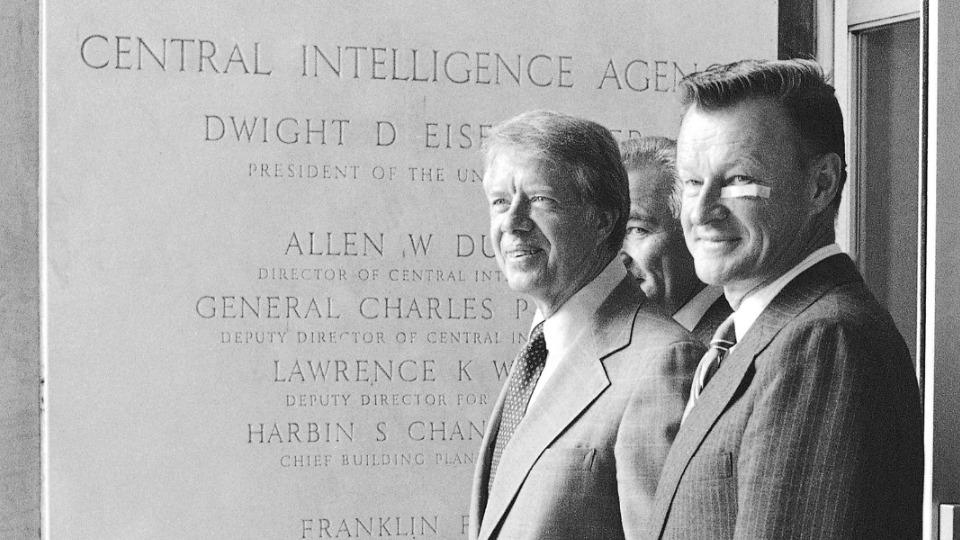
Along similar lines, Uriah noted in his thesis: “Partly because of détente, the federal government had consistently decreased the U.S. military budget in the years before Carter took office. Despite his critics’ claim to the contrary, Carter increased military spending each year of his presidency and the Soviet invasion of Afghanistan stimulated him to propose still further spending.”
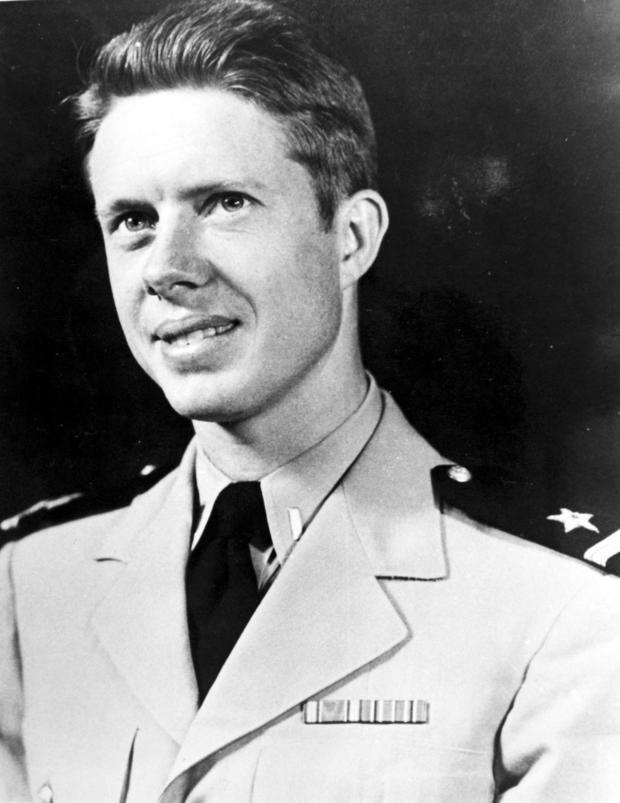
And for good measure, it should be mentioned that, during Carter’s presidency, war hawk Paul Wolfowitz served in the Pentagon from 1977 to 1980 as Deputy Secretary of Defense for Regional Programs, as T.D. Allman pointed out in Rogue State: America at War with the World. We should also remember that Carter was a military man who served, active and reserve, from 1946 to 1961.
Astute observers noted this was the first paving stone laid in the road to 9/11 and beyond. Andrew Austin, a professor at the University of Wisconsin, Green Bay, wrote: “Carter era policy, which involved U.S. funding to mujahideen…triggered a series of events culminating in the worst terrorist attacks on United States soil.”[2]
In his 2000 book Blowback: The Costs and Consequences of American Empire, ex-CIA consultant Chalmers Johnson called Osama bin Laden “a former protégé of the United States” who eventually “turned against the United States in 1991 because he regarded the stationing of American troops in his native Saudi Arabia [where Mecca is located] during and after the Persian Gulf War as a violation of his religious beliefs.”
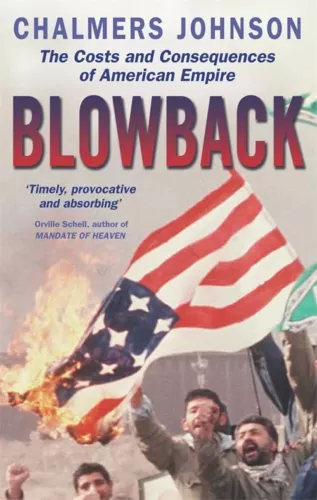
In a 2003 piece entitled “The Largest Covert Operation in CIA History,” Johnson wrote that the “truth of the matter is that Carter signed the finding [ordering the CIA to provide covert backing to the mujahideen] on July 3, 1979, six months before the Soviet invasion.” Additionally, Johnson pointed out that “the ‘tens of thousands of fanatical Muslim fundamentalists’ the CIA armed are some of the same people who in 1996 killed 19 American airmen at Dhahran, Saudi Arabia; bombed our embassies in Kenya and Tanzania in 1998 [eight years to the day of U.S. troops being deployed to Saudi Arabia]; blew a hole in the side of the U.S. destroyer Cole in Aden harbor in 2000; and on Sept. 11, 2001, flew hijacked airliners into New York’s World Trade Center and the Pentagon.”
As the Machiavellian Brzezinski stated, Carter’s July 3, 1979, directive to aid the Mujahideen led to “the breakup of the Soviet empire” (although of course there were other factors). Views of the USSR range from “the evil empire” to the belief of some leftists that it represented “real existing socialism” or was “a deformed workers’ state,” etc.
Despite these differences, these various viewpoints all share something in common: An understanding that the Soviet Union (and its allies) was a countervailing force to U.S. and Western imperialism and hegemony. Whatever your opinion may be of the USSR, its downfall removed a major source of resistance on the world stage to Washington and its imperial henchmen.
The Nation’s obituary is entitled As an Ex-President, Jimmy Carter Fought for Peace—but not so much for Afghanistan when he was president. The obituary may contain some accurate facts, but strangely never once refers to the essential role Carter played in getting the ball rolling in his clandestine Afghan operation as the meddling commander-in-chief who fought for war.
In all of the post mortems on Carter, I only heard one brief mention of his despicable role vis-à-vis the muj, from Yale University Prof. Greg Grandin on Pacifica Radio’s Democracy Now! January 7.
A Blunder of Olympic Proportions
A crucial element of Carter’s response in the public arena to the Soviet incursion into Afghanistan belies his much-ballyhooed prioritization of human rights. The president declared that the U.S. would not participate in the 1980 Summer Olympics in Moscow unless the Russians removed their troops from Afghanistan.
However, at that time American Olympians were amateurs and not state-sponsored or supported with taxpayer money. Nevertheless, the privately funded athletes who trained on their own were forced, whether they liked it or not, to not compete in the USSR. In so doing, Carter’s autocratic edict violated the Olympic spirit of placing sports above politics and many who had trained for years were denied the opportunity to compete at the quadrennial event while they were in their prime.
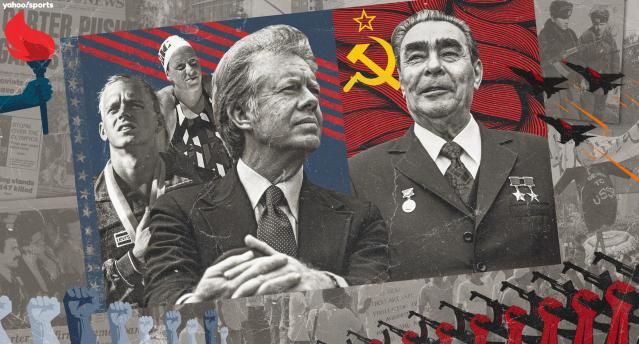
According to Politico: “Olympians fervently opposed it. ‘Any boycott isn’t going to change the Soviets’ mind and isn’t going to get troops out of Afghanistan,’ complained Julian Roosevelt, an American member of the International Olympic Committee.”
In her December 29, 2024, column in USA Today, Nancy Armour recalled the anguish Carter caused the would-be champions, who “remain in a weird sort of athletic purgatory, Olympians without an Olympics.”
In 1980 long-distance runner Bill Rodgers told The Washington Post: “We’re simply a tool, an implement. No one cares at all, until we can be used for their purposes. Then they can use it.’”
“‘I feel like a doctor who knows the specialty, but I don’t have that M.D.,’ wrestler Lee Kemp, who would have been the heavy favorite for gold at 74 kilograms in Moscow after winning the world title in 1978 and 1979, told the New Orleans Times-Picayune in 2010.”
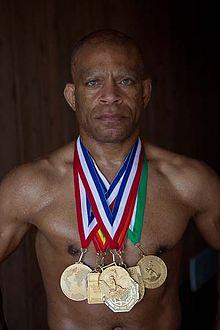
Lefty sports reporter Dave Zirin wrote in The Progressive that “the only people who truly suffer because of a boycott are the athletes themselves. They become understandably sympathetic figures, and no President wants to be seen as denying athletes their long-sought opportunity to perform the triple axel they’ve been practicing for years. Jimmy Carter learned this lesson the hard way with the boycott of the 1980 Summer Olympics in Moscow which, despite majority public support, was deeply contested by athletes and questioned by foreign policy experts.”
By boycotting the 1980 Olympics, Carter sought to punish the Soviets for their military actions in Afghanistan—which, of course, he and his administration had covertly instigated by supporting the mujahideen. Just as Carter was willing to overlook his “human rights” policy by playing footsy with the governments of Pakistan and the People’s Republic of China when it came to arming the mujahideen, the president’s advocacy of human rights did not extend to athletes when it clashed with his geopolitical goals. Carter’s human rights policy was selectively pursued and his realpolitik cruelly crushed contenders’ dreams of participating in the Olympics, possibly winning Olympic gold. Human rights, yes—but not so much for athletes.
Iran Imbroglio
Carter also did not allow his professed belief in human rights to get in the way of his supporting one of the world’s worst tyrants. According to Ted Rall in his book Political Suicide: The Fight for the Soul of the Democratic Party, Carter “provoked the Iran hostage crisis by offering refuge to the deposed dictator, the corrupt Shah of Iran.” After the CIA helped overthrow Iran’s democratically elected prime minister, Mohammad Mosaddegh, for nationalizing oil production in 1953, Mohammad Reza Pahlavi was installed in power.
The U.S.-backed Shah ruled with an iron fist; the SAVAK secret police ruthlessly imprisoned and tortured many Iranians. After the despised Shah was toppled in the Islamic Revolution of 1979, Carter allowed him to come to America to receive cancer treatment.
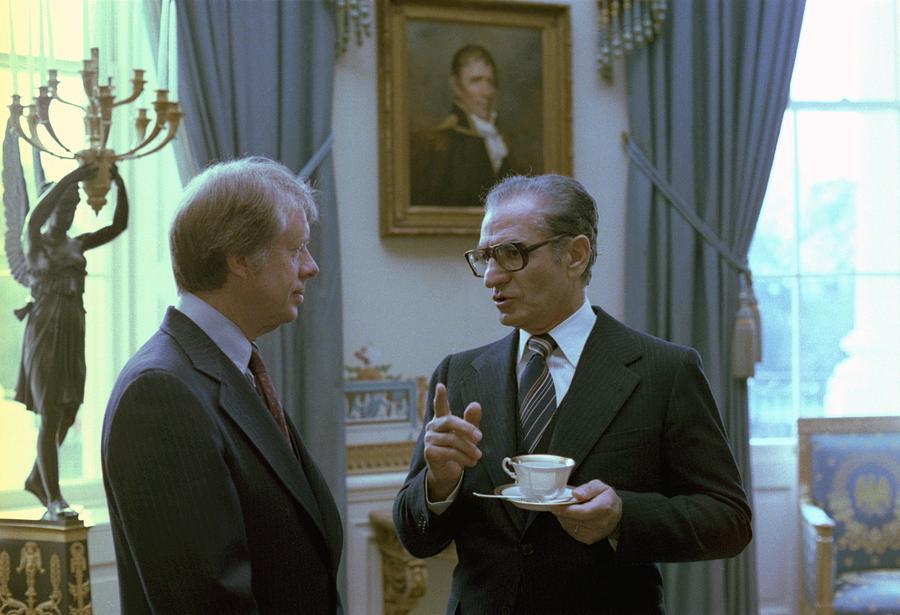
Given the U.S. history in Iran, this incited radical students to storm the American embassy in Tehran, and 53 diplomats and U.S. citizens were taken hostage—from November 4, 1979, to January 20, 1981, the day Ronald Reagan was inaugurated after beating Carter in the presidential election.
When diplomacy failed, Carter turned to the military, but an April 24, 1980, attempted rescue mission was badly bungled, causing the deaths of eight U.S. servicemen and an Iranian civilian. Carter’s ham-handed mishandling of the Iranian situation likely cost him re-election, as the hostage crisis lingered on for 444 days.
Ironically, the Reagan campaign is widely suspected of conspiring with Iran not to release the imprisoned Yanks until after the November election in order to bolster Reagan’s electoral bid. Carter deployed clandestine operations in Afghanistan but in turn-about-unfair-play, it appears that the Reagan team’s dirty tricks helped defeat Jimmy at the polls.
But Carter’s granting of asylum and admission to the U.S. for cancer treatment of the hated Shah, considered to be a mass murderer by millions of Iranians, plus a fumbled rescue mission that was as totally inept as his interactions with revolutionary Iran, proved to be the 39th president’s undoing.
Today, America is still dealing with Carter’s colossal failures in both Afghanistan and Iran, as the Sunday school teacher proved to be woefully incompetent in dealing with Islamists.
Beyond Illusions: The First Casualty of Presidency
An assessment of the Carter presidency that ignores President Carter’s nefarious interventions with the mujahideen and Shah of Iran et al. is as incomplete and one-dimensional as would be a biography that omitted what is, at least according to conventional wisdom, the pinnacle of Carter’s foreign policy—the signing of the Camp David Accords in September 1978 by Prime Minister Menachem Begin and President Anwar Sadat, which paved the way for a peace treaty between Israel and Egypt.
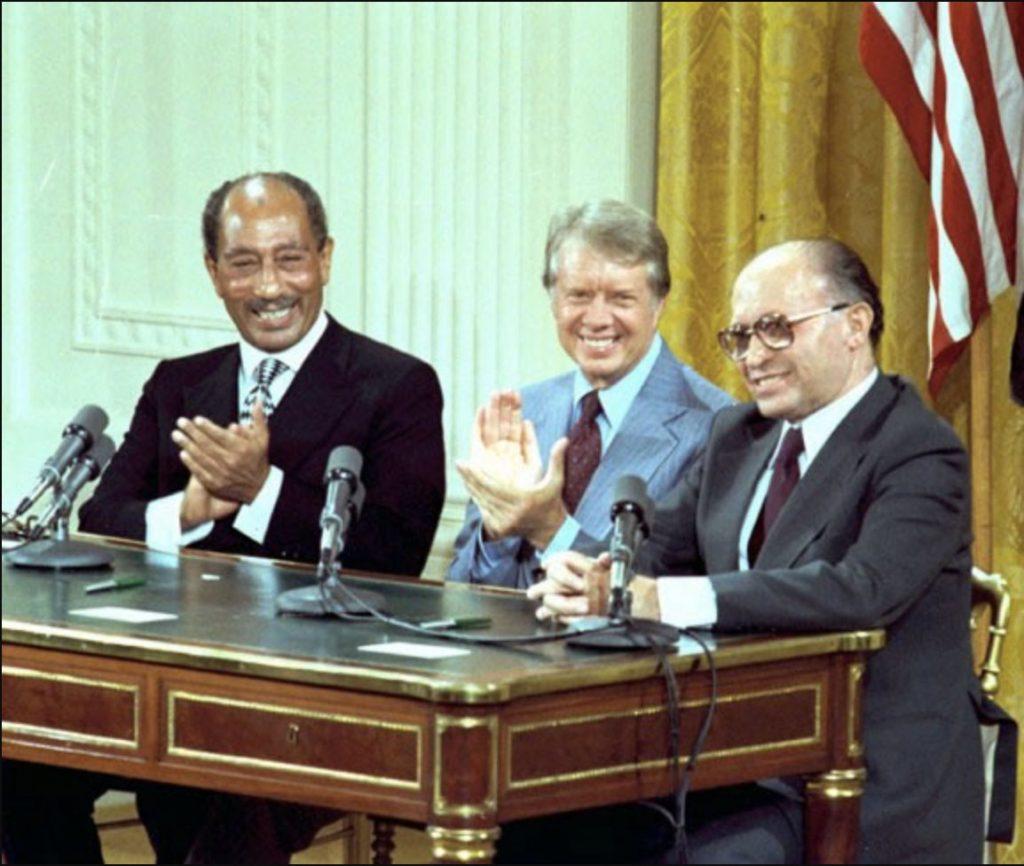
American geopolitical interactions with the Muslim world go at least as far back to the presidency of Thomas Jefferson, when the U.S. Navy clashed with the Barbary pirates. But unlike Carter, the deistic Jefferson was no evangelical, and America’s 1801-1805 military engagements off the coast of North Africa had more to do with free trade than religion.
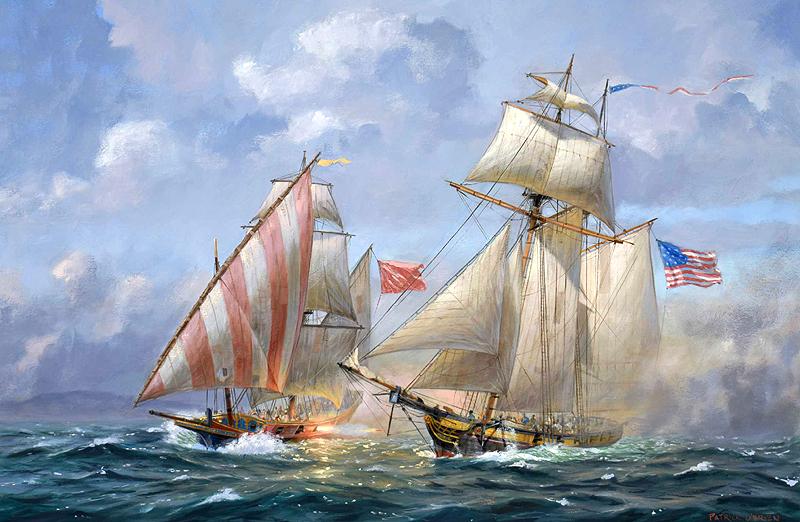
Carter’s disastrously meddlesome interactions with Iranians and Afghans mark him as the first U.S. president who set Washington on a collision course with political Islam. Just as the current, ongoing brouhaha with Iran can at least partially be blamed on Carter’s coddling of the murderous Shah, the initial paving stone for the path that led to 9/11 was arguably laid by Carter’s egregiously immoral imperial tampering in Afghanistan’s internal affairs by covertly funding the murderous mujahideen. That bloody road led not only to carnage in the streets of Manhattan, but all the way through to the catastrophic withdrawal of U.S. forces from Afghanistan that finally ended the American military involvement there in 2021.
It is hard to play “what if?” with history but the Carter regime bears at least some of the responsibility for starting what was to come. Like a snowball rolling down a mountain causing an avalanche, Carter played a quintessential role in saddling America with the longest war in U.S. history—which, contrary to the bourgeois press, did not begin in 2001, but way back in 1979, when Carter began clandestinely funding and arming Islamist extremists with the CIA’s costliest covert action, which Osama bin Laden and other fanatical jihadists would eventually join.
In Carter and Zbig’s zeal to give the USSR its own “Vietnam War,” in the world of blowback he ended up burdening Americans with another Vietnam-like cataclysm that stretched from 1979 to 2021. Especially as a New Yorker, I would argue that Carter’s record of blunders vis-à-vis political Islam, which triggered countless deaths and staggering suffering, is the most consequential cataclysmic calamity of Carter’s presidency and what the Man from Plains should plainly be most remembered for perpetrating. His busybody geopolitics of sticking your nose in where it does not belong should be a lesson to us all, empowering us to cast aside illusions.
As America reels from yet another apparent terrorist act on New Year’s Day in New Orleans executed by a man who, so we are told, served in the U.S. military in Afghanistan (as, reportedly, did the Cybertruck bomber in Las Vegas in a Musk vehicle in front of a Trump hotel) and had an ISIS flag on his murderous pick-up truck, no record and appraisal of the great “peacemaker” President Carter is complete without taking this dark side of his troubled and tragic legacy into account. As Shakespeare advised us in Hamlet: “He was a man, take him for all in all…”—the good, the bad and the ugly, as Sergio Leone put it.
From the very beginning, Americans have fancied their head of state to be a man of virtue and veracity. George Washington supposedly said “I cannot tell a lie” and Lincoln was nicknamed “Honest Abe.” But as President Biden’s about-face regarding granting his criminal son a pardon most recently reminds us, U.S. presidents often say one thing but do another. Real life is not a fairy tale—leaders chop down cherry trees, then say they didn’t. And James Earl Carter—like Richard Milhous Nixon and Donald John Trump—is no exception to the rule of the rulers.
While the commentariat and MSM neglect it, the biggest lesson to be learned from Carter’s presidency is about the dangers of covert operations and sticking your nose into where it does not belong and how this often causes disastrous, if unintended, consequences in the form of blowback.

The Nation did run one at least critical piece on Carter by Jonathan Schlefer on Carter’s ruinous neoliberal legacy but this piece characteristically offered no criticism of Carter’s foreign policy and offered no discussion of Carter’s shady dealings with the Afghan mujahadin. ↑
See https://andrewaustin.blog/2019/10/11/sowing-the-seeds-of-terrorism-capitalist-intrigue-and-adventurism-in-afghanistan/. ↑
CovertAction Magazine is made possible by subscriptions, orders and donations from readers like you.
Blow the Whistle on U.S. Imperialism
Click the whistle and donate
When you donate to CovertAction Magazine, you are supporting investigative journalism. Your contributions go directly to supporting the development, production, editing, and dissemination of the Magazine.
CovertAction Magazine does not receive corporate or government sponsorship. Yet, we hold a steadfast commitment to providing compensation for writers, editorial and technical support. Your support helps facilitate this compensation as well as increase the caliber of this work.
Please make a donation by clicking on the donate logo above and enter the amount and your credit or debit card information.
CovertAction Institute, Inc. (CAI) is a 501(c)(3) non-profit organization and your gift is tax-deductible for federal income purposes. CAI’s tax-exempt ID number is 87-2461683.
We sincerely thank you for your support.
Disclaimer: The contents of this article are the sole responsibility of the author(s). CovertAction Institute, Inc. (CAI), including its Board of Directors (BD), Editorial Board (EB), Advisory Board (AB), staff, volunteers and its projects (including CovertAction Magazine) are not responsible for any inaccurate or incorrect statement in this article. This article also does not necessarily represent the views the BD, the EB, the AB, staff, volunteers, or any members of its projects.
Differing viewpoints: CAM publishes articles with differing viewpoints in an effort to nurture vibrant debate and thoughtful critical analysis. Feel free to comment on the articles in the comment section and/or send your letters to the Editors, which we will publish in the Letters column.
Copyrighted Material: This web site may contain copyrighted material the use of which has not always been specifically authorized by the copyright owner. As a not-for-profit charitable organization incorporated in the State of New York, we are making such material available in an effort to advance the understanding of humanity’s problems and hopefully to help find solutions for those problems. We believe this constitutes a ‘fair use’ of any such copyrighted material as provided for in section 107 of the US Copyright Law. You can read more about ‘fair use’ and US Copyright Law at the Legal Information Institute of Cornell Law School.
Republishing: CovertAction Magazine (CAM) grants permission to cross-post CAM articles on not-for-profit community internet sites as long as the source is acknowledged together with a hyperlink to the original CovertAction Magazine article. Also, kindly let us know at info@CovertActionMagazine.com. For publication of CAM articles in print or other forms including commercial internet sites, contact: info@CovertActionMagazine.com.
By using this site, you agree to these terms above.
About the Author
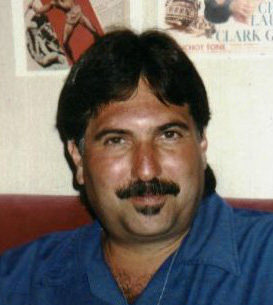
Ed Rampell is an L.A.-based film historian and critic who also reviews culture, foreign affairs and current events.
Ed can be reached at edrampel@gte.net.


Here is a good article on the New High School text books in Russia.
https://theconversation.com/back-in-the-ussr-new-high-school-textbooks-in-russia-whitewash-stalins-terror-as-putin-wages-war-on-historical-memory-216255
When Stalin died there was no mention in the Russian media about the enormous atrocities committed by Stalin. and even today many Russians have no knowledge of these atrocities and still idolize him, dismissing any negative reports as propaganda.
It is true that today Putin is trying to whitewash the atrocities of Stalin and has removed all bad things about Stalin from school textbooks. But in 2013 Putin had a completely different tune when he made the following comment ”“Stalinism is associated with a personality cult and mass violations of the law, with repression and camps,” he said in 2013. “There is nothing like this in Russia and, I hope, never will be again.” It is weird that the Putin of 2025 is so different from the Putin of 2013.
Excellent narrative and analysis. I hope that that Democrat Nation publisher prostitute for US wars and genocide loses much more of its so-called “progressive” readership. And I also hope that “progressives” wake up to the contemporary and historic fact that Democrats as well as Republicans love killing millions of people in their attempt to dominate the world.
Very well expressed
https://www.adl.org/resources/report/antisemitic-conspiracies-about-911-endure-20-years-later
As bad as this Carter lie and maneuver are, 9-11 was brought to you by the Bush-Cheney crowd with assistance from Israel (the dancing Israelis celebrating in real time the fall of the towers arrested on 9-11 and simply released to Israel some weeks later).
https://www.ae911truth.org/news/519-lawsuit-seeks-answers-on-five-men-arrested-on-9-11
And how did the hijackers make WTC Bldg 7 fall?
Jimmy Carter was a strong believer in renewable energy such as solar panels. Having said that although China is the world leader in solar panels and other renewable energies, China still has more that twice as much pollution as the United States. Obviously China should focus less on its economic prowess and more on reducing skyrocketing pollution levels.
https://www.renewableenergyworld.com/solar/china-crushes-clean-energy-goal-still-polluting-more-than-twice-the-u-s/